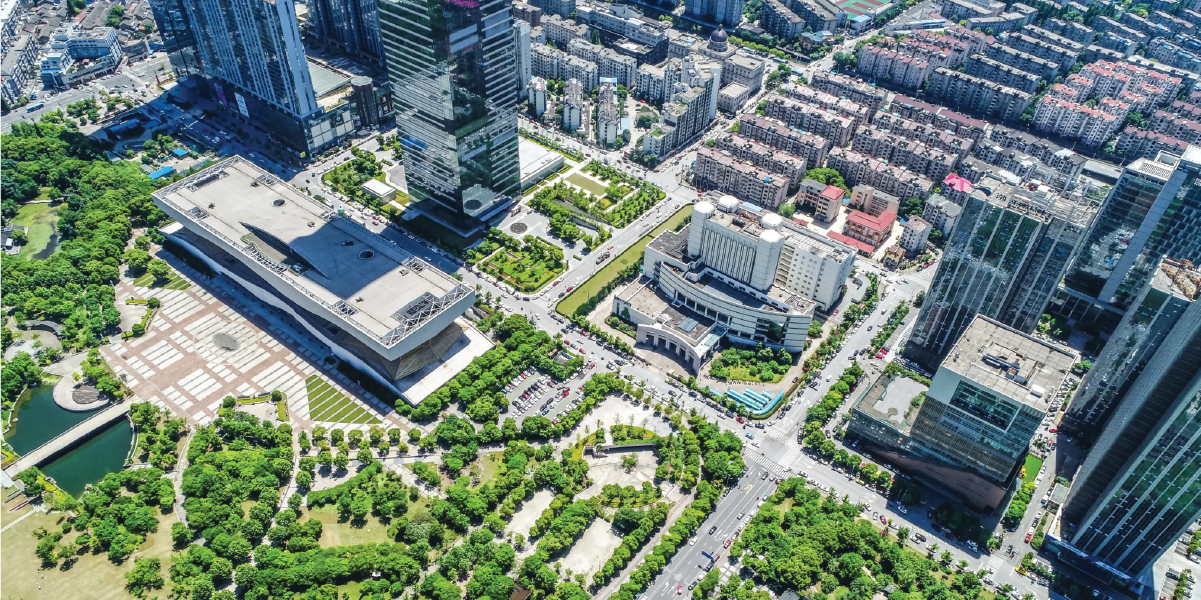As Pakistan grapples with rapid urbanization, climate change, and environmental degradation, green infrastructure (GI) has emerged as a pivotal strategy in sustainable urban planning. From urban forests and sponge city designs to eco-friendly policy reforms, Pakistan is increasingly integrating nature-based solutions to enhance climate resilience, improve public health, and foster inclusive urban growth.
At the core of this transformation are organizations like Levant Commercial Solutions (LCS), which provide specialized advisory services, contract structuring, and project feasibility expertise to help public and private entities execute sustainable infrastructure initiatives.
Understanding Green Infrastructure
Green infrastructure encompasses a network of natural and semi-natural systems—such as parks, wetlands, green roofs, and tree-lined streets—that provide essential ecosystem services. Unlike traditional grey infrastructure, which often exacerbates environmental challenges, GI offers sustainable solutions for stormwater management, air purification, temperature regulation, and biodiversity conservation.
LCS plays a critical role here by structuring sustainable development contracts, ensuring environmental risk mitigation and long-term project viability through precise legal, financial, and compliance frameworks. Their technical advisory and BPO services help streamline the execution of these green initiatives, especially when transitioning from concept to implementation.
The Imperative for Green Infrastructure in Pakistan
Pakistan’s urban centers are experiencing unprecedented growth, leading to increased pollution, heat islands, and inadequate waste management. These challenges are compounded by the country’s vulnerability to climate-induced disasters like floods and heatwaves. Integrating GI into urban planning is not just beneficial but essential for creating resilient and livable cities.
Levant Commercial Solutions supports this imperative by offering feasibility and pre-feasibility advisory that includes financial modeling and investment roadmaps for GI projects. Their expertise helps government bodies and private developers assess the long-term ROI and risk profile of sustainable infrastructure ventures.
Key Initiatives and Projects
1. Clifton Urban Forest, Karachi
Established in 2021, this project transforms 200 acres of degraded land into a thriving urban forest using the Miyawaki technique. With over 800,000 trees planted, it addresses heat, pollution, and biodiversity loss.
For projects like this, LCS offers contract management and regulatory compliance support, helping ensure that partnerships with government entities and NGOs are structured for transparency and long-term success.
2. Khyber Pakhtunkhwa Cities Improvement Project
Supported by multilateral institutions, this project enhances urban services while incorporating green design principles. From stormwater drainage systems to eco-friendly transport, the focus is on climate-resilient cities.
Levant’s contract structuring and compliance advisory ensures such public-private partnerships are aligned with both Pakistani and international standards, helping mitigate risk and unlock funding.
3. Sponge City Initiatives in Karachi
These pilot projects introduce permeable pavements, rain gardens, and green roofs to reduce flood risks. By absorbing excess rainwater, these cities “sponge” instead of flooding.
LCS can offer investment structuring, project planning, and legal advisory services to facilitate scaling such initiatives nationwide, making them more attractive to both local and foreign investors.
4. Urban Forestry in Islamabad
Islamabad’s authorities are creating dense urban forests using fast-growing native species. These forests improve air quality and help manage urban heat islands.
As these projects grow in complexity, LCS provides HR advisory and BPO support for institutions managing large-scale urban green initiatives—enabling them to efficiently manage resources and staffing.
5. Ravi Riverfront Urban Development Project, Lahore
This mega-project aims to transform Lahore’s urban fabric while restoring the Ravi River. Sustainable planning, renewable energy, and GI integration are central to its design.
LCS’s technical advisory and feasibility studies ensure that environmental sustainability is balanced with commercial viability, helping developers present credible investor reports and attract responsible capital.
Policy and Planning Frameworks
Pakistan has made strides in developing policy frameworks to support GI:
- Green Infrastructure Indicators: Developed to guide sustainable urban planning, with a focus on climate resilience.
- Community Engagement: Stakeholder involvement is increasingly emphasized in planning urban green spaces.
- Policy Integration: GI principles are being integrated into local master plans and zoning regulations.
Levant Commercial Solutions actively collaborates with urban planners and policymakers, offering insight into regulatory compliance and assisting with legal frameworks that support green development. Their corporate structuring services also help local bodies transition from informal setups to formal, well-governed entities capable of executing GI projects effectively.
Challenges and Opportunities
Challenges
- Funding Constraints: GI projects often require upfront investment with long-term payoffs.
- Lack of Awareness: Many institutions underestimate GI’s economic and social benefits.
- Maintenance and Oversight: Long-term management of GI projects remains a weak link.
Opportunities
- Public-Private Partnerships (PPPs): GI projects can benefit from well-structured PPPs—an area where LCS has deep expertise.
- International Aid and Investment: Green financing is increasingly accessible for well-prepared projects with transparent structures and feasibility reports.
- Smart City Integration: LCS supports urban developers in combining digital innovation with sustainable planning through business process optimization and smart outsourcing models.
Levant Commercial Solutions: Enabling Green Urban Transformation
Green infrastructure cannot thrive without strategic planning, efficient execution, and rigorous governance. This is where Levant Commercial Solutions adds lasting value:
- Feasibility & Pre-Feasibility Studies: LCS helps determine project viability through financial modeling, risk analysis, and investor-grade reporting.
- Corporate Structuring: LCS assists municipal bodies and private developers in establishing formal structures and governance models to manage GI projects.
- Contract Advisory: From PPPs to private investments, LCS ensures legal clarity, fairness, and long-term sustainability.
- BPO & Process Optimization: For large GI projects, LCS streamlines back-office operations, compliance documentation, and reporting—ensuring smooth delivery.
Conclusion
Green infrastructure is no longer optional—it’s essential. In a country facing rising climate risks and urban pressures, sustainable development must be at the heart of city planning. Pakistan’s embrace of GI reflects a hopeful trend toward livability, equity, and environmental health.
With expert partners like Levant Commercial Solutions, Pakistan’s urban future can be green, resilient, and economically sound. By combining advisory intelligence, contract management, and feasibility acumen, LCS empowers cities and developers to build not just greener spaces—but better futures.


